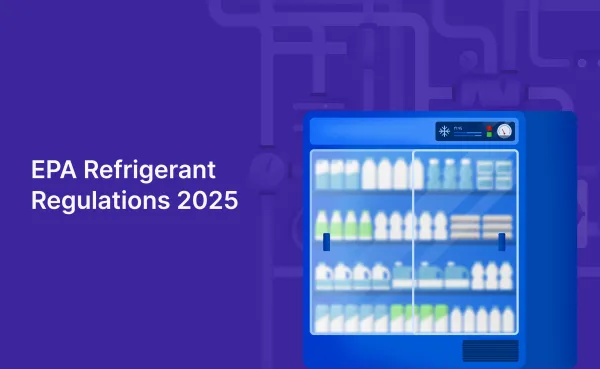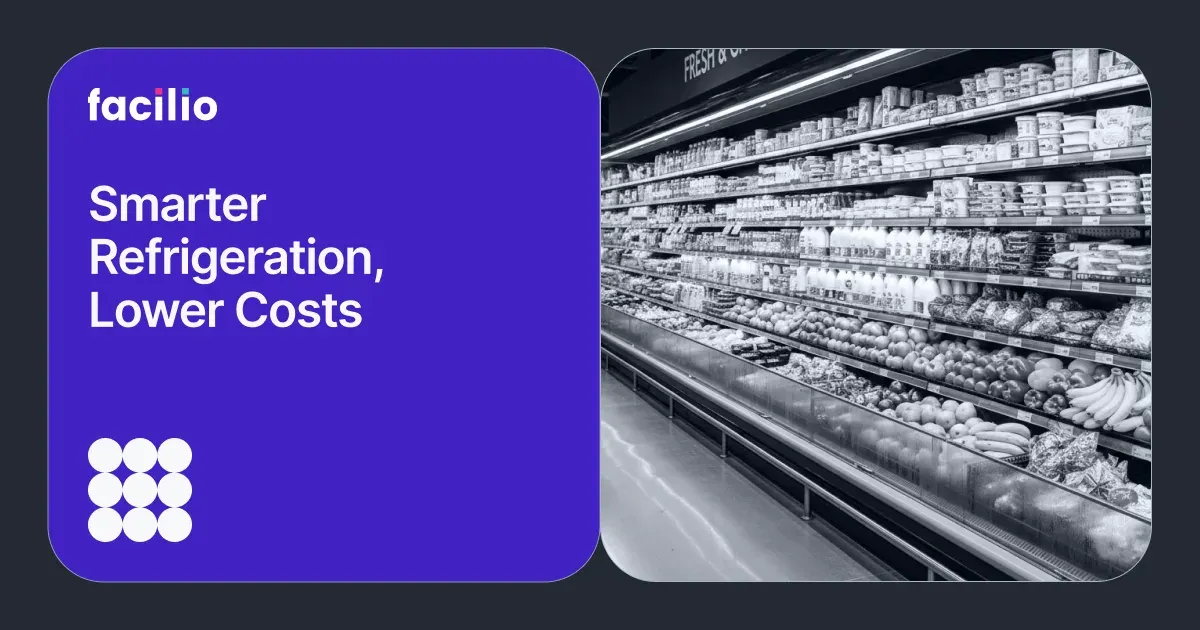
Refrigeration Management: Strategies for Energy Savings and Cost Reduction
Refrigeration management decisions can be complex. You know the benefits of energy-efficient models—lower costs and a greener footprint. But the decision isn’t always as straightforward as it seems.
- Did you consider upfront costs?
- Were you torn between focusing on energy efficiency or prioritizing the type of refrigerant used?
- Perhaps you even questioned how these factors would impact your ROI or payback period?
These trade-offs can be frustrating and overwhelming, leaving you wondering if there’s a way to optimize both efficiency and cost without sacrificing one for the other. It’s a common scenario in the retail sector, where balancing immediate expenses with long-term savings plays a critical role in decision-making.
Despite representing just 1% of total commercial floorspace, these buildings accounted for a disproportionate 3% of energy consumption across all commercial buildings.
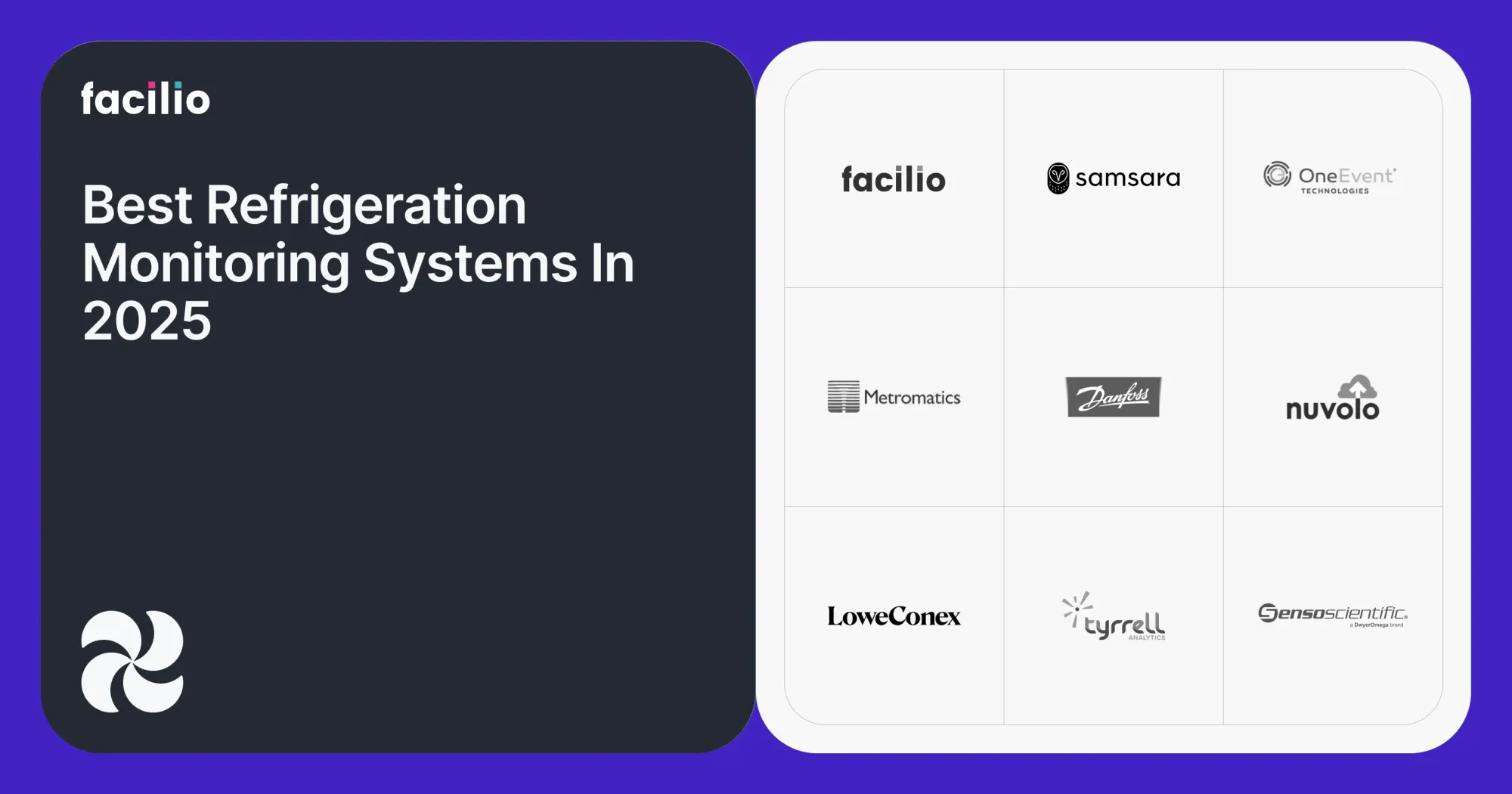
When examining energy use by building type, the study shows that food sales buildings had the highest percentage of energy dedicated to refrigeration, consuming 38% of their total energy while recording energy intensity values as high as 87.1 MBtu per square foot.
While upgrading to more energy-efficient (NPV-positive) refrigeration systems may require a higher initial investment, it can significantly reduce your ongoing operational and maintenance costs, ultimately boosting your profit margins.
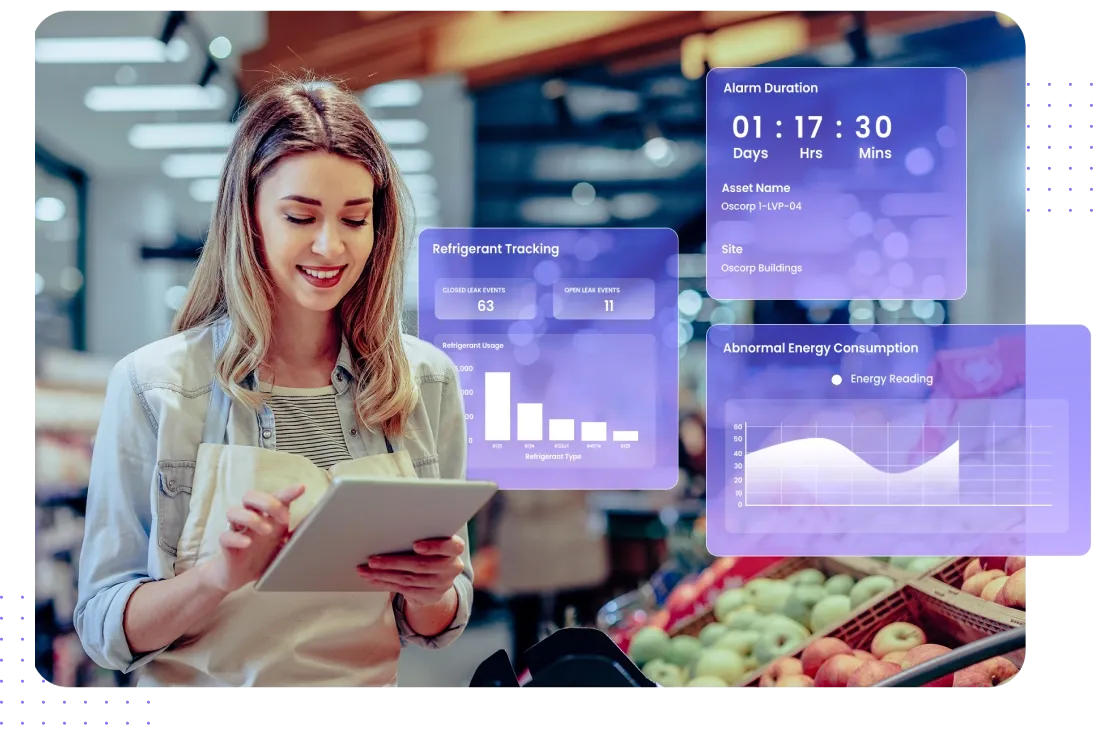
A Schneider Electric whitepaper highlights that large retail companies consume $20 billion in energy annually. If these companies harness the energy efficiencies available through existing technologies, this consumption could be reduced by $3 billion annually.
To put this energy-efficiency potential in perspective, consider a typical retail store with an annual energy expenditure of $200,000.
Achieving a 15% reduction in energy costs would save $30,000 annually.
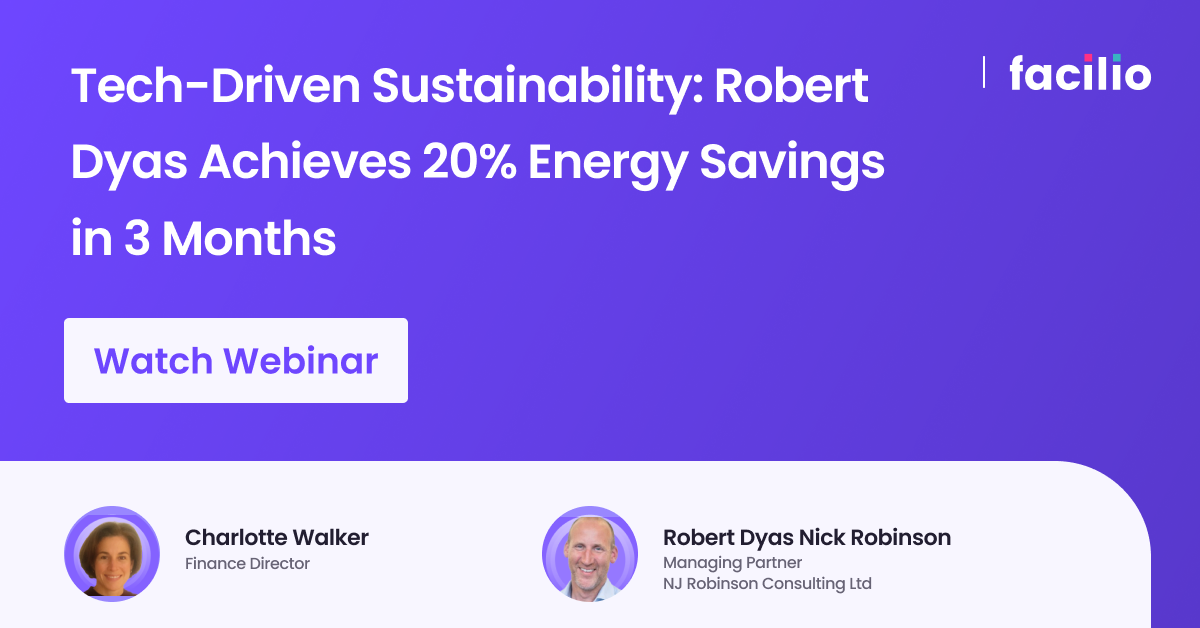
If the store operates with a profit margin of 3%, these savings would boost the profit margin to about 3.45%, significantly enhancing overall profitability.
The challenge? Traditional O&M technology for refrigeration management is outdated and siloed. These hardware-based systems make it difficult to access crucial data, centralize operations for multi-site businesses, and ultimately optimize efficiency. Why It Matters For Facility Upkeep
But there’s a solution—intelligent cloud-based software that centralizes all aspects of O&M activity; leverages automation, machine learning, and IoT-based monitoring to reduce energy use; and gives clear insights into operational costs.
To fully understand the benefits of this approach, let's first explore the basics of refrigeration management.
Common challenges in refrigeration management
Traditional refrigeration management systems often operate in silos, relying on outdated hardware and fragmented data collection methods. These systems pose several challenges for you
- Limited Integration: Traditional systems often cannot integrate with other energy management systems or data sources, hindering comprehensive energy monitoring and optimization.
- Delayed Insights: Manual data collection and reporting methods result in delays and inaccuracies, making it difficult for you to respond promptly to operational issues.
- High Operational Costs: Inefficiencies in energy use and equipment maintenance increase your operational costs and reduce profit margins.
- Regulatory Compliance: Compliance with stringent refrigeration laws adds another layer of complexity. These regulations require precise monitoring and reporting of refrigerant use, leak detection, and emissions control, which traditional systems struggle to handle effectively.

The promise of modern, cloud-based solutions
Facilio's connected refrigeration management platform offers a comprehensive suite of features designed to streamline operations, ensure compliance, and enhance overall efficiency. Here’s a deeper look at how these key advantages benefit your retail operations:
All-in-One Platform
Streamlined Operations: Facilio’s platform integrates all aspects of compliance, detection, and leak management into a single, cohesive system. This eliminates the need for multiple, disconnected tools, ensuring that your team has all the information they need at their fingertips. This integration leads to more efficient operations and quicker response times to any issues that arise.
Real-Time, Audit-Ready Reporting
Informed Decision-Making: With real-time data and audit-ready reporting, you can make informed decisions quickly. The platform provides instant access to critical data, ensuring that you stay ahead of potential problems and can address them proactively. This level of reporting also simplifies compliance audits, as all necessary information is readily available and well-organized.
User-Friendly Native Mobile Apps
Ease of Adoption: Facilio’s native mobile apps are designed to be intuitive and user-friendly, ensuring that contractors and staff can easily enter and access data. This ease of use promotes timely data entry and adoption across your team, leading to more accurate and up-to-date information.
Seamless Integration with Industry Standards
Compliance and Standards: Facilio integrates seamlessly with key industry standards such as CARB (California Air Resources Board), GreenChill, and ESG (Environmental, Social, and Governance). This ensures that your operations not only meet but exceed regulatory requirements, enhancing your reputation and reducing the risk of fines and legal issues.

Low Code/No-Code Platform
Flexibility and Customization: The low-code/no-code nature of Facilio’s platform allows you to automate processes easily and adapt to evolving needs without extensive programming knowledge. This flexibility ensures that your system can grow and change with your business, allowing you to implement new processes quickly and efficiently.
Market-Ready to Handle Any Refrigerant Use Case
Comprehensive Refrigerant Management: Whether you are dealing with leak events, repairs, installations, or retrofitting, Facilio’s platform is equipped to handle all refrigerant use cases. This comprehensive capability ensures that you can manage your refrigeration systems effectively, maintaining optimal performance and compliance at all times.
Impact on Your Operations
By integrating Facilio’s connected refrigeration management platform, you transform your retail operations into a seamless, efficient, and compliant system. Here’s how these advantages translate into real-world benefits:
- Enhanced Operational Efficiency: With a unified platform, your data flows seamlessly across departments, improving decision-making and reducing downtime.
- Significant Cost Savings: Predictive maintenance, energy optimization, and efficient inventory management reduce operational costs and prevent expensive repairs.
- Improved Compliance and Sustainability: Automated compliance tracking and reporting keep you ahead of regulations, supporting your ESG initiatives and enhancing your sustainability efforts.
- Better Customer Experience: Consistent refrigeration performance ensures product freshness, enhancing customer satisfaction and loyalty.
- Future-Proof Operations: Facilio’s scalable solutions prepare your business for future challenges, integrating new technologies as needed.
Facilio’s connected platform doesn’t just enhance your refrigeration management—it revolutionizes it, providing a comprehensive solution that drives efficiency, reduces costs, and ensures compliance, all while supporting your sustainability goals.
Would you like to watch Facilio in action? Click on the link below and pick a time that works for you.
Future trends in IoT and refrigeration management
As technology advances, the possibilities for IoT-based energy metering are endless. Automated billing systems, demand response mechanisms, and predictive energy usage analytics are just a few exciting possibilities.
To capitalize on these trends, organizations need to:
- Invest in scalable IoT solutions that can integrate with future technologies. This includes choosing platforms that support various devices and protocols.
- Focus on data analytics is crucial. Robust capabilities are needed to extract actionable insights from the vast amounts of data generated by IoT devices.
- Partner with leading IoT and AI technology providers, allowing retailers to pilot new solutions and gain early access to cutting-edge innovations.
Crucially, retailers need to move beyond single-vendor solutions and embrace comprehensive approaches. Hardware-agnostic IoT software platforms provide a unified view of various systems, and actionable data insights help optimize operations, energy use, and compliance, reiterates Basant Singhatwadia, Director of Customer Innovation & Strategy at Facilio.
Don't settle for fragmented systems. Book a demo today and see how Facilio can empower your retail business.
FAQ
How can I improve the energy efficiency of my refrigeration systems?
To improve energy efficiency, regularly maintain and clean components like condensers and evaporators, optimize temperature set points, use energy-efficient equipment, and implement smart refrigeration management software for real-time monitoring and control.
Additionally, ensure the refrigeration unit is appropriately sized for its load. An oversized unit consumes excess energy, while an undersized unit overworks to maintain temperatures, increasing energy use.
The basics of refrigeration management
Understanding the core principles of refrigeration management is crucial to reaping the full benefits of advanced solutions. Here's why effective refrigeration management is essential for retail operations:
- Operational efficiency: Optimizing refrigeration systems helps facilities minimize maintenance costs, reduce equipment wear and tear, and extend the lifespan of refrigeration units. Regular maintenance prevents costly breakdowns and prolongs equipment life, translating into substantial operational cost savings over time.
- Product preservation: Proper refrigeration is essential to maintain the quality and safety of perishable goods. Without adequate management, perishable items are at risk of spoilage, which not only results in financial losses but also poses significant health risks to consumers.
- Energy efficiency: Refrigeration systems are among the largest consumers of energy in retail facilities. Efficient management significantly reduces energy usage, leading to lower utility bills and a reduced environmental footprint.
- Regulatory compliance: All refrigerant compliance regulations require accurate and timely recordkeeping of leak rates; adhering to food safety regulations and energy efficiency standards is crucial for retail operations.
Proper refrigeration management helps facilities stay ahead of evolving standards, mitigate fines and legal issues, maintain their reputation, and ensure continuous safe operation.
What are the best practices for maintaining refrigeration equipment in retail stores?
Even with a robust maintenance schedule, professional inspections are crucial for preventing unexpected failures. Regularly check the paneling inside walk-in units for warping or damage, and use integrated software solutions to monitor performance and identify issues early.
How does refrigeration management software enhance operational efficiency?
This technology centralizes data, allowing for better decision-making and quicker responses to issues. It reduces downtime, lowers operational costs, ensures compliance, and streamlines workflows by integrating various systems and processes.
It does this by providing real-time data and insights, automating maintenance schedules, and predicting refrigeration equipment failures.
What should I consider when implementing a new refrigeration management system?
Consider its compatibility with existing equipment, scalability for future growth, and real-time monitoring capabilities. Ensure it integrates seamlessly with other systems, offers user-friendly and customizable interfaces, and supports predictive maintenance.
Can refrigeration management software help in complying with food safety regulations?
Yes, refrigeration management software can significantly aid in complying with food safety regulations. These software solutions provide tools for monitoring temperature controls, ensuring proper storage conditions, and maintaining detailed records of refrigeration system performance.
More from Facilio
















